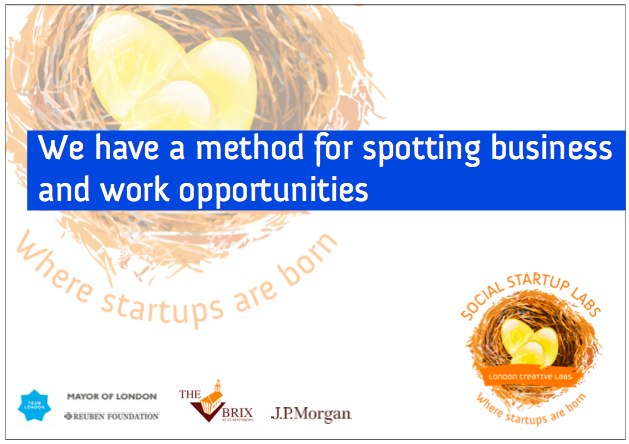A New Kind of Business - An opinionated digest of Chapter 1 from Creating a World Without Poverty
 Sunday, August 2, 2009 at 2:59AM
Sunday, August 2, 2009 at 2:59AM Editor’s note: This is a guest post from Mamading Ceesay.
Dr. Yunus begins this chapter of his book with a discussion of the success of capitalism and that despite the economic growth accompanying the spread of free-market economics there is a persistent massive disparity between the North and South in terms of income distribution with half of the world's population living on two dollars a day or less. Even in the wealthy US, a sixth of the population is excluded from basic medical care due to lack of health insurance. Briefly touched upon are the UN Millenium Development Goals and the lack of success in achieving them.
Given the above context, Dr Yunus points out that clearly the current "Winner Takes All" form of globalization implicitly encourages the externalisation of costs from the free market onto society and the planet with a "Race to the Bottom" creating and/or exacerbating global poverty and environmental degradation while fostering individualistic consumerism at the cost of social well-being. These constitute massive and systemic market failures.
To achieve a “win-win” form of globalization, the free market needs to be regulated to protect the interests of the poor. Dr. Yunus is explicit about being a believer in the power of free markets and wishes to harness that power for the benefit of the very poor and provide solutions to the problems of global poverty and environmental degradation.
Is Government the Answer?
Dr. Yunus then goes on to discuss market regulation, the role of the state in creating what can be imperfect regulation which may well be poorly enforced. Developed countries tend to do better than developing countries in terms of regulating the market at a national level, though Dr. Yunus is at pains to point out that “starting in the 1980s, conservative politicians have taken every opportunity to undermine government regulations” in developed countries. My own observation is that this seems to be particularly true in the English-speaking countries (US, UK, Australia). On an international level, the regulatory regime is still emerging but the agenda being promoted via the World Trade Organisation and other bodies is essentially the sort of neoliberal market fundamentalism that leads to a “Race To The Bottom” hence making the necessity for initiatives such as Simpol not to mention leading to all sorts of anti-capitalist activism and spurring on various social justice movements.
Market regulation is a necessary but not sufficient step for solving social problems neglected by business. It doesn’t address the “Bottom of the Pyramid” and bring the global poor into the mainstream world economy. Traditionally in developed countries, the state has created welfare systems to address social problems with some degree of success. There is a limit to the effectiveness of governments in dealing directly with social issues, some of which is due to its top-down, centralized, bureaucratic, self-serving nature. Another factor is that lobbying by wealthy and powerful vested interests often stops governments from doing what’s necessary to truly address social issues e.g. the reform of healthcare in the US has been stopped in the past by insurance & pharmaceutical companies. The state can play a role in alleviating the worst social problems but certainly isn’t a solution let alone a panacea.
The Contribution of Nonprofit Organizations
The failure of both the market and the state to address the problems of the world has led to the emergence of nonprofit organizations of various kinds including charities, nongovernmental organizations etc… Charitable giving arises out of altruistic and/or religious concern. Nonprofit groups often play a key role in delivering aid in times of emergency, but are often unable to deal with the root causes of chronic social problems. The dependence of nonprofits on donations limits the scale, reach and sustainability of what they can achieve. Nonprofit leaders all too often find themselves expending time and energy on the treadmill of fundraising rather than developing their social programmes which greatly impairs their ability to make a real impact on social problems. Nonprofits aren’t the solution to the world’s social ills.
Multilateral Institutions – The Development Elite
Having dismissed nonprofits as a force for real social change, Dr Yunus goes on to examine the role of multilateral institutions such as the World Bank and the International Monetary Fund. These are sponsored and funded by governments to eliminate poverty by promoting economic development in developing countries. The multilaterals have the flaws of both the governments and the nonprofits which means their decades-long investments of hundreds of billions of dollars has been pretty ineffective in tackling issues such as global poverty.
A major contributing factor is the single-minded focus of multilateral policymakers on large-scale economic growth measured solely by GDP, without any consideration of whether there is any benefit to the poor or not from the growth. This leads to a highly prescriptive policy of building infrastructure to enable industrialization and automation. Another issue with the multilateral mindset is a tendency to see the poor as objects rather than independent actors who could take care of their own needs if they were facilitated to do so. Instead, policymakers support existing institutions that may be contributing to, creating or sustaining poverty; the very institutions that often have a vested interest in maintaining poverty. Ergo, new institutions purposely designed for the elimination of poverty need to be created.
Multilateral institutions use governments as the channel for selecting and implementing projects, rather than engaging with other more innovative and dynamic segments of society. Given the aforementioned flaws in governments, this is a self-evidently suboptimal approach doomed to failure
Dr. Yunus compares and contrasts the business styles of the World Bank and Grameen Bank which share the same goal but have very different methods. Grameen is proactive and flexible, while encouraging borrowers to be autonomous and rely on their own common sense and knowhow, it avoids being prescriptive. In contrast, the World Bank imposes bureaucratic constraints and is very prescriptive in supervising projects. Despite all of that, the projects often don’t work out.
The incentive systems differ very substantially between the two organizations. Grameen incentivises not only financial results but social outcomes, whereas in the World Bank, only the size of the loan book is considered.
Dr. Yunus proposes a complete reform of the World Bank and the IMF and makes a number of specific recommendations for the reform on pages 14-15.
Corporate Social Responsibility
Given the harm done by the dark side of the free market and the ensuing bad PR, companies have been pressured to change their behaviour and this has led to the emergence of corporate social responsibility (CSR). Dr. Yunus makes the distinction between weak CSR and strong CSR, whereas the former is about doing no harm to people and planet (unless it means sacrificing profit), the latter is about doing good for people and planet (as long as it can be done without sacrificing profit).
One of the problems with CSR is that it can be and is abused to generate good PR (greenwash) for otherwise bad companies which use it as window dressing to make themselves look good. There are an increasing number of executives of genuinely good will who are trying to make CSR work, but the primary legal responsiblity of an executive is to maximize shareholder profit which systemically compromises CSR as a force for genuine social change. When there is a conflict between profit and social responsiblity, profit will always win. This means that companies will never be a solution for social problems.
Capitalism Is a Half-Developed Structure
In line with the autistic form of economics promoted by the neoliberal disciples of Friedman, capitalism as currently practiced assumes that people are rational self-interested creatures whose sole goal is maximizing profit. No wonder they call economics the dismal science! Dr. Yunus sees this as a one-dimensional view of human nature, which is the root of a number of evils which are self-evident. Since humans are multi-dimensional, we need a form of capitalism, a form of business which is also multi-dimensional, ergo Dr. Yunus’ concept of social business.
My thoughts
Dr. Yunus on examining the existing institutions and organisations, has found them all to be fatally flawed from the point of view of solving endemic social problems such as global poverty. Thus clearing the ground for his proposal of the social business concept which is explained in Chapter 2.



Reader Comments